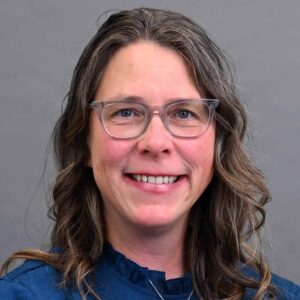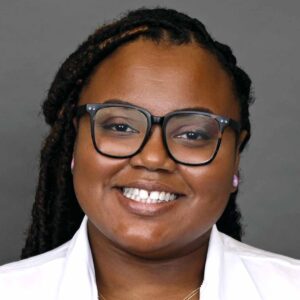Two pieces of data are abundantly clear: Transgender adults in the United States face disproportionately higher physical and mental health issues stemming from a web of structural, institutional, social, economic, and political factors. And they have been historically and consistently underserved by the American medical system when it comes to receiving equal access to comprehensive and culturally competent care.
On a mission to change this trajectory by offering a best-in-class gender-affirming care program is a team of healthcare providers from AvitaCare Atlanta. Trusted in the community for over two decades, AvitaCare Atlanta, an Avita Care Solutions company, partners with MedCura Health to offer the community integrated, compassionate, and inclusive primary and specialized care services, including gender-affirming care, sexual wellness care, diabetes management, behavioral health, comprehensive in-person and telehealth-based HIV prevention and treatment programs, and more.
We spoke to providers Erin Everett, Terry Hackworth, Michelle Sariev, and Jewel Sawyer for insights on the challenges often faced by patients during their gender-affirming care journey, how the AvitaCare Atlanta service model is built to alleviate these wellness barriers, and why the care team is committed to advocacy and professional mentorship to ensure the transgender community receives the health equity that is their human right.
Transgender adults in the United States face disproportionately higher physical and mental health issues stemming from a web of structural, institutional, social, economic, and political factors. And they have been historically and consistently underserved by the American medical system when it comes to receiving equal access to comprehensive and culturally competent care.
Q: How can healthcare providers and team members create a more inclusive and supportive environment for gender-diverse patients?
A: “One of the simplest ways to create a more inclusive healthcare environment is to ask people about their pronouns and chosen names,” says AvitaCare Atlanta Nurse Practitioner Erin Everett. “Using a patient’s preferred pronouns, rather than just those they were assigned at birth, validates not only their gender identity but also their person.”
It’s also important to confirm that all team members have received training in addressing patients in a culturally competent manner. “The front desk team makes the clinic’s first impression on a patient,” Erin says. “They ensure the patient’s experience begins on a positive and reassuring note. This impact extends to every patient interaction with team members. Trust and rapport are developed once a patient knows that the entire staff accepts them. That’s how a clinic develops a reputation for inclusivity and excellence.”
Last but certainly not least, healthcare environments feel safer and more inclusive when gender, ethnically, and culturally diverse art and print media are incorporated into the decor. “At AvitaCare Atlanta, we feature a wide variety of people in our print media, decorative art, and message displays,” Erin says. “Each patient care room has an interactive display highlighting clinic updates, and patients will notice people who look just like them in those postings.”

Erin Everett
MSN, NP-C AAHIVS, ASDAH, WPATH
AvitaCare Atlanta
Trust and rapport are developed once a patient knows that the entire staff accepts them. That’s how a clinic develops a reputation for inclusivity and excellence.
Q: What are the top challenges patients face during their gender-affirming care journey, and how can providers and their office teams successfully address them?
A: “A major challenge these patients face is a lack of safe access to hormone therapy and appropriate general medical care that is free of stigma and discrimination,” says AvitaCare Atlanta Nurse Practitioner and Clinician Lead Terry Hackworth. “There is a shortage of providers trained in gender-affirming care,” he says. “Providers need to provide a safe space with a team trained in gender-affirming care to help eliminate this issue.”
Financial barriers such as a lack of insurance or low income can also impact an individual’s access to care, as do socioeconomic barriers such as transportation, housing, or mental health issues, Terry says. “To address these obstacles, providers can offer patients linkage to social service programs that will assist them with their transportation needs, solve for housing instability, and suggest referrals to gender-affirming mental healthcare providers.”

Terry Hackworth
DNP, MBA, APRN, NP-C, AAHIVS
AvitaCare Atlanta
There is a shortage of providers trained in gender-affirming care. Providers need to provide a safe space with a team trained in gender-affirming care to help eliminate this issue.
Q: What advice would you give patients about what to look for in a gender-affirming care provider?
A: The World Professional Association for Transgender Health (WPATH) has a “Provider Directory Search” function, says AvitaCare Atlanta Nurse Practitioner Michelle Sariev. “This can be a good place to start. However, it’s important to note that many gender-affirming providers are not in this database.” She also recommends looking for healthcare facilities and providers who practice at clinics that participate in the Human Rights Campaign’s (HRC’s) Healthcare Equality Index (HEI) survey. “Often, word of mouth from community members can be an excellent way to learn about local resources,” Sariev says. She suggests looking for providers who highlight their sexual health, trauma-informed care, and harm reduction training in their bios.
And don’t forget, “the best gender-affirming care providers are proud of what they have done to prepare to be resources, rather than gatekeepers, to their patients,” she says. For example, gender-affirming hormone therapy providers who offer services based on informed consent versus requiring a letter from a mental health professional are in congruence with the updated recommendations from the WPATH Standards of Care (SOC) 8. That said, providers should also value their behavioral health colleagues as part of a comprehensive team.

Michelle Sariev
BSN, MSN, APRN, FNP, AAHIVS
AvitaCare Atlanta
The best gender-affirming care providers are proud of what they have done to prepare to be resources, rather than gatekeepers, to their patients.
Q: What does the intake process and continuing patient care journey look like for patients starting gender-affirming care at AvitaCare Atlanta?
A. Patients or potential patients start by scheduling an appointment at the clinic over the phone or via its online portal, says AvitaCare Atlanta Physician Assistant and Clinician Lead Jewel Sawyer. Upon arrival, patients provide personal information, insurance details, and medical history and are encouraged to note their preferred name and gender identity so team members can address them appropriately and respectfully.
“The first visit will entail screening, a health history, consent, and a discussion about the patient’s goals and expectations,” Jewel explains. “Baseline labs are usually completed at this first appointment to help develop the care plan. After initiating medication, routine follow-ups and labs will be scheduled for monitoring and adjustments as needed. We have a multidisciplinary team available to coordinate social work, nutrition, behavioral health, and case management services—all of which are available to our patients to provide the highest level of care. And our onsite pharmacy allows patients to access gender-affirming hormone therapy in a non-judgmental environment.”

Jewel Sawyer
PA-C, MSHS, AAHIVS
AvitaCare Atlanta
We have a multidisciplinary team available to coordinate social work, nutrition, behavioral health, and case management services—all of which are available to our patients to provide the highest level of care.
Q: Why is it crucial for gender-affirming care providers to partake in ongoing professional development, continuing education, and mentorship programs to successfully care for patients?
A: Participating in continuing education is an important component to increasing the quality of care for gender-affirming individuals, says Terry, who frequently speaks and teaches gender-affirming care best practices at nursing conventions and seminars. “Providers must be familiar with the barriers to care patients may encounter and how to work with their patients to overcome them,” he says. “Transgender patients have unique healthcare needs, and maintaining up-to-date education enables providers to meet those needs.”
Likewise, providers mentoring their colleagues on gender-affirming care is vital to improving access to care, Terry says. “Including gender-affirming care into the curriculum for nursing and medical students during their clinical rotations will help these providers provide better care in the future.”
Providers must be familiar with the barriers to care patients may encounter and how to work with their patients to overcome them. Transgender patients have unique healthcare needs, and maintaining up-to-date education enables providers to meet those needs.
Terry Hackworth
DNP, MBA, APRN, NP-C, AAHIVS
AvitaCare Atlanta
Q: This team will speak on “Navigating the Intersections of Gender, Sexual Health, and HIV Prevention” on August 15th at the Atlanta Comfort Conference, an annual educational and social experience for the transgender community. What will the seminar cover?
A: “We’re excited to provide an opportunity for the Atlanta community to ask us anything!” says Erin. “We’ll review important information about HIV prevention and treatment, sexual health, and general primary care needs of gender-diverse people in an easy-to-understand format, then turn things over to attendees and explore additional topics. Our goal is to let people know that we are real people with a strong desire to serve our community and how easy accessing safe, inclusive care can be.”
ABOUT THE PROVIDERS
Erin Everett, MSN, NP-C AAHIVS, ASDAH, WPATH
Erin is a nurse practitioner at AvitaCare Atlanta and an LGBTQ+ healthcare advocate. She is passionate about providing a safe, comfortable environment for her patients to receive care. Erin is certified by the American Academy of HIV Medicine as an HIV Specialist. A wife and mother of two, she holds degrees in psychology and nursing from Northern Illinois University and a Master of Science in Nursing degree (AGNP) from Ball State University.
Terry Hackworth, DNP, MBA, APRN, NP-C, AAHIVS
Terry is a nurse practitioner at AvitaCare Atlanta, where he diagnoses and manages acute and chronic care patients. He earned his Bachelor of Science in Nursing from Morehead State University, a Master of Business Administration from the University of Phoenix, and a Master of Science in Nursing specializing as an adult/gerontological nurse practitioner from the University of Alabama at Birmingham. Terry completed his Doctor of Nursing Practice at Augusta University. In his free time, Terry plays on his local LGBTQ+ softball team.
Michelle Sariev, BSN, MSN, APRN, FNP, AAHIVS
Michelle is a nurse practitioner at AvitaCare Atlanta. She is certified through the American Association of Nurse Practitioners and the American Academy of HIV Medicine (AAHIVM). Her areas of expertise include preventive medicine and wellness, gender-affirming care, and HIV prevention and treatment. In 2019, Michelle received Emory University’s Outstanding Ally of the Year Award. She is a member of the AAHIVM National Board of Directors and has been a featured guest on the Exclusively Inclusive Podcast. Michelle admires Margaret Newman’s Theory of Health as Expanded Consciousness, which challenges medical professionals to look at health not as wellness or sickness but rather an ongoing experience that shapes us. When she is not caring for patients, she enjoys traveling to renew her energy and spirit.
Jewel Sawyer, PA-C, MSHS, AAHIVS
Jewel is an infectious diseases physician assistant at Avita Care Atlanta. Her clinical interests include gender-inclusive sexual health, gender-affirming hormone therapy, and HIV prevention and treatment education. She plays an active role in community education and outreach and strongly believes that social determinants and intersectionality are important to physical health when developing a care plan. She is an active competitive powerlifter and enjoys training to support her mental and physical health.



